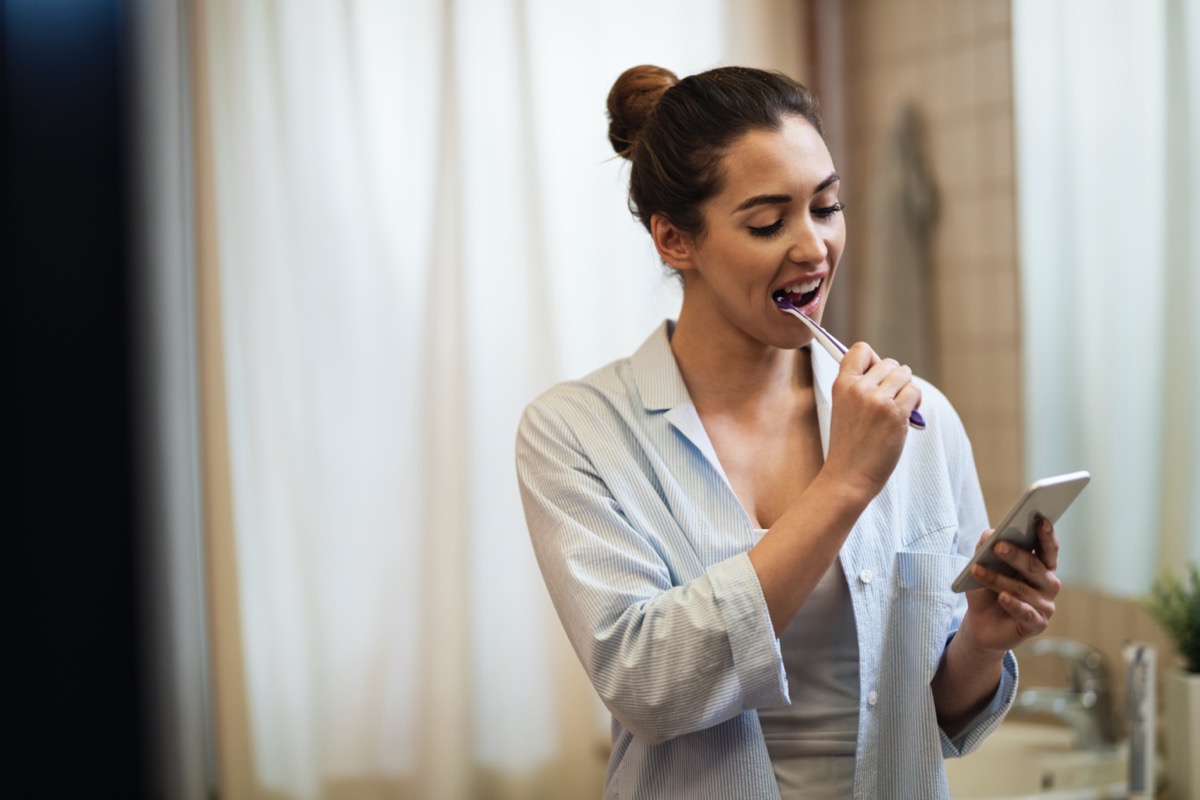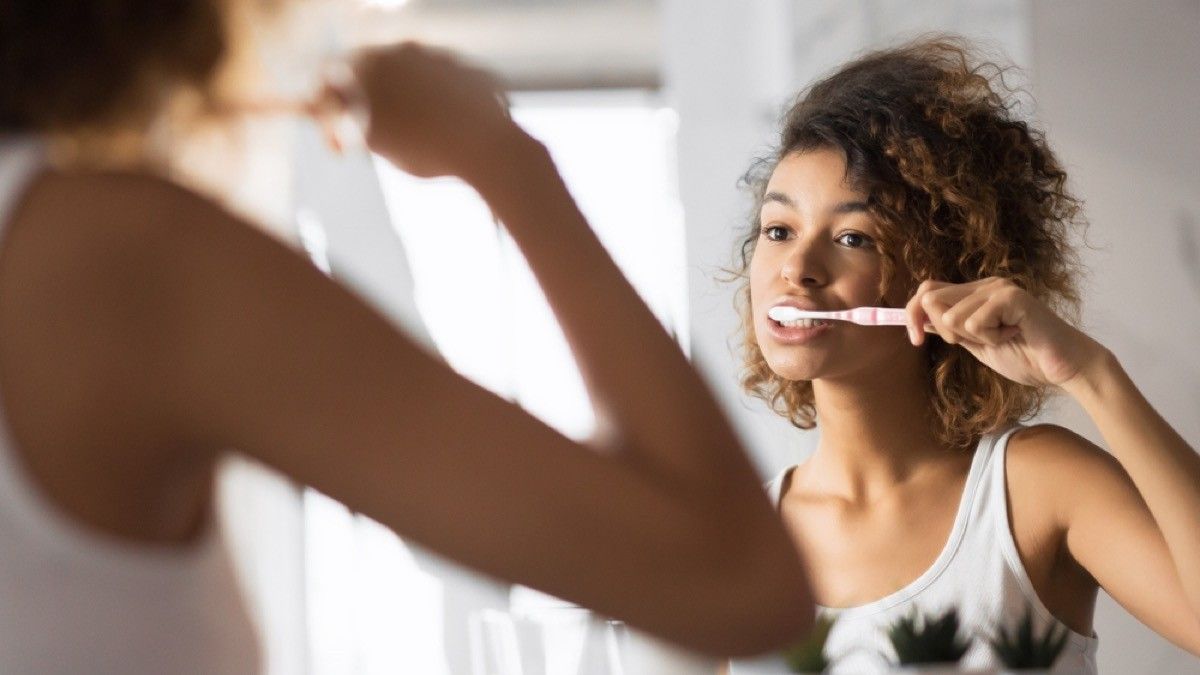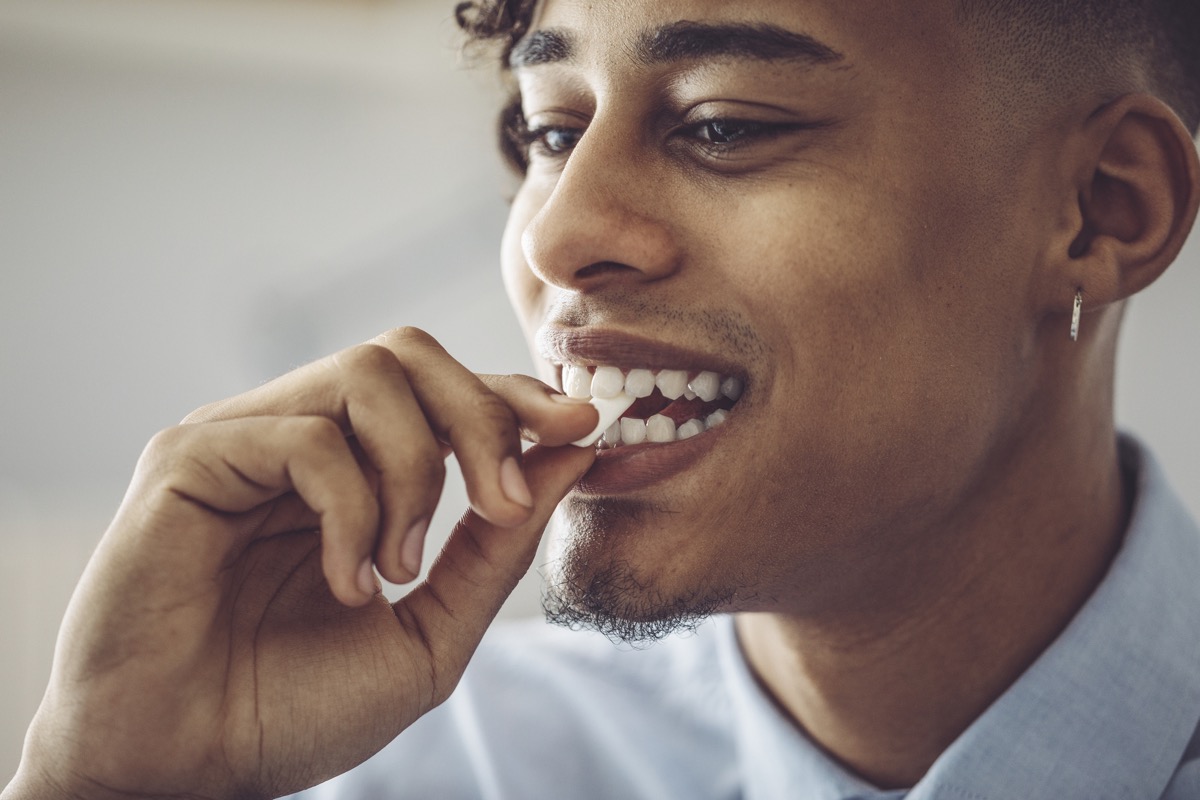It may seem intuitive to brush your teeth right after sullying them with food, but dentists warn that brushing your teeth right after eating is ill-advised. This is because digestion begins in the mouth, which creates an acidic environment that’s not the best condition to brush your teeth in, according to Jeannie Grecco, DDS, of Rejuvenation Dentistry. “When you eat foods containing sugar (or simple starches that break down into sugars inside your mouth), cavity-causing bacteria inside your mouth feed on the sugars and produce acid. When your teeth are exposed to a highly acidic environment, it temporarily weakens your enamel (the hard, outer surface of the tooth) by causing it to lose minerals,” says Jin Lin, DMD, the owner of Hurst Pediatric Dentistry. “Rubbing your enamel with a toothbrush when it is in this weakened state may further damage the enamel.“And for more hygiene habits to avoid, If You’re Doing This in the Shower, Doctors Say to Stop Immediately. Sometimes you’re itching to brush your teeth after a particularly seedy snack, but the American Dental Association (ADA) recommends you wait at least an hour after eating to brush your teeth. Neil J. Gajjar, DDS, former president of the Academy of General Dentistry, says this amount of time “allows time for your body to neutralize the acidic environment that may have been created by acidic foods that were ingested.” This shift back to a neutral pH is a result of saliva, which contains antibodies that fight off cavity-causing bacteria, Gajjar explains. By waiting an hour, you give your saliva enough time to do its job. And while you’re brushing, If You See This in Your Mouth, Your Heart Attack Risk Is High, Study Saysae0fcc31ae342fd3a1346ebb1f342fcb “If you don’t wait after a meal, the brush will push that acid around, and the abrasive nature of brushing may cause more damage when performed in an acidic environment,” Gajjar says. Also, by not giving your body enough time to neutralize the cavity-causing bacteria floating around in your mouth, you could end up pushing a heightened amount of bacteria around your mouth. The bacteria could then be “left in places that are difficult to reach with your toothbrush, allowing them to hide out and cause damage to your teeth,” Gajjar adds. And for more useful information delivered straight to your inbox, sign up for our daily newsletter. If you feel like you can’t wait an hour to cleanse your mouth, the ADA recommends drinking water or chewing sugarless gum that has the ADA Seal of Acceptance to get your mouth minty fresh ahead of the brushing. Jin also recommends rinsing “your mouth with a mix of water and a bit of baking soda to help neutralize the acids.” And for more essential dental guidance, If You Only Brush Your Teeth Once a Day, This Is When You Should Do It.



